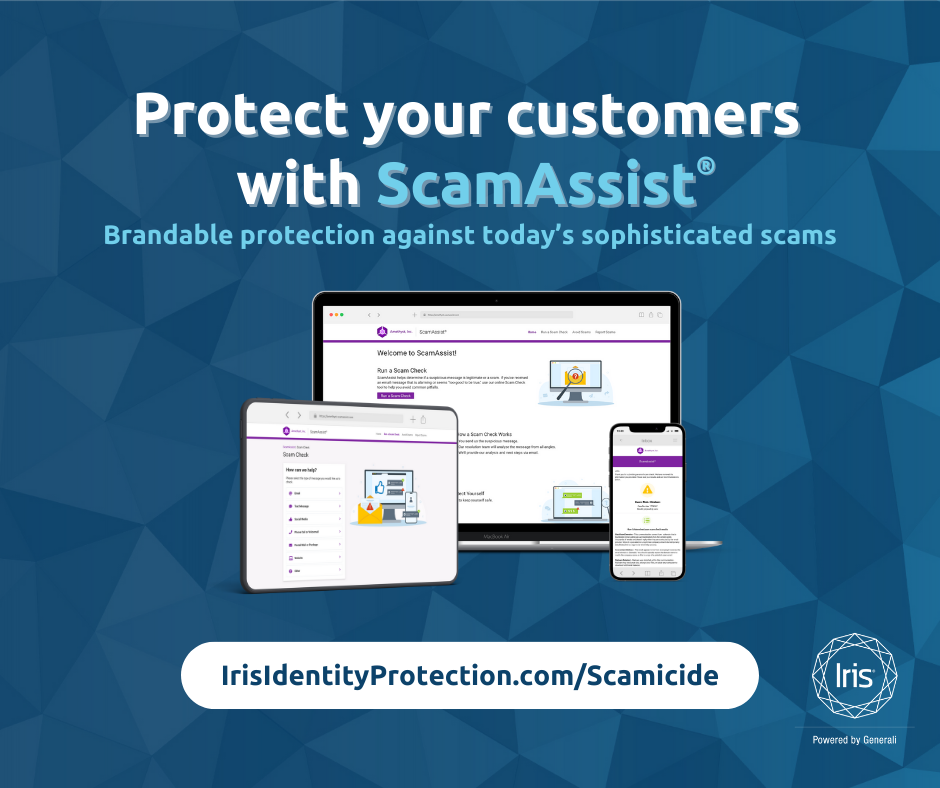
Scams, identity theft and cybercrimes threaten everyone.
Every year people lose billions of dollars to scams, identity theft and cybercrime. No one is immune to these dangers. Young and old alike are victims and if you think you are too smart to become a victim, you are wrong. According to the National Association of Securities Dealers wealthy, financially literate and astute people are actually more likely to become victims of financial scams.
The key to protecting yourself from scams cybercrime and identity theft is education and that is where Scamicide.com comes in. Here at Scamicide.com you will learn how to recognize scams, cyber security threats and risks of identity theft as well as how to avoid them. Here at Scamicide.com we also alert you each and every day to the latest developments in scams, cyber security and identity theft and tell you what you need to do to protect yourself. It is a dangerous world out there, but Scamicide.com can help you make it safer.
Scam of the day – May 5, 2024 – Mavis Wanczyk Scams Continue
She’s back! Actually, she has never left. I have been writing about scams related to Mavis Wanczyk for seven years but recently I have received many emails from Scamicide readers telling me about various new incarnations of a variety of scams that share the same hook which is that Mavis Wanczyk is giving money away to lucky people. Many of you may not remember the name of Mavis Wanczyk, but she was the lucky winner of a 758 million dollar Powerball drawing in 2017. Not long after she claimed her prize, a scam started appearing in which many people received emails with the message line referring to the Mavis Wanczyk Cash Grant. The email indicated that you were chosen to receive a large cash grant from Mavis Wanczyk. All the lucky strangers receiving the emails had to do was provide personal information in order to qualify for the grant. In addition, phony social media accounts on Twitter, Facebook and Instagram were also set up in Ms. Wanczyk’s name through which people were contacted with the same phony offer of free money informing them that in order to qualify for the grant they merely needed to provide personal information.
Recently a Scamicide reader told me that after he had tweeted a message on X (formerly Twitter) he was contacted by a scammer posing as Mavis Wanczyk that she liked his tweet and that she was sharing some of her Powerball winnings with a select amount of people that follow her on social media. Fortunately, the Scamicide reader looked into Mavis Wanczyk and found out about the various scams using her name.
TIPS
It is difficult to win a lottery you have entered. It is impossible to win one that you have never entered and neither lottery winners, nor anyone else is sending out messages through the Internet offering free money to anyone who responds with personal information. Never give out personal information that can make you vulnerable to identity theft unless you have absolutely verified that the party requesting the personal information is legitimate and has a legitimate need for the information.
Finally and most importantly, remember neither Mavis Wanczyk nor any other lottery winner is giving away money to strangers.
If you are not a subscriber to Scamicide.com and would like to receive free daily emails with the Scam of the day, all you need to do is to go to the bottom of the initial page of http://www.scamicide.com and insert your email address where it indicates “Sign up for this blog.”
Phone calls, emails, and text messages are among the primary ways that scam artists, the only criminals we call artists, contact their targeted victims. Scammers have a knowledge of psychology that Freud would have envied, and they are adept at luring us to click on malware-infected links, provide personal information that can lead to identity theft, or make a payment. Anyone can be scammed. For years, I have told you, “Trust me, you can’t trust anyone,” and that you should be skeptical of emails, phone calls, and text messages prompting you to act. But how can you know if a phone call, email, or text message is legitimate? Fortunately, there is a terrific new product called ScamAssist® from Iris® Powered by Generali that you can turn to quickly to let you know if that communication is a scam. It can be a lifesaver. While Iris® Powered by Generali doesn’t offer ScamAssist for direct purchase, if you’re a business professional looking to fill a product gap in your portfolio and want to provide customers a service they’ll truly value, contact Iris at IrisIdentityProtection.com/Scamicide to learn how you can get started. Join a growing list of companies – such as Staples – that have recognized that providing ScamAssist to its customers helps protect them and generates goodwill.
Winning the Battle Against Scammers with Iris® Powered by Generali’s ScamAssist®
It’s no secret: scams and identity theft/fraud are a threat to both individuals and businesses. The impact of scams is clear for consumers. In 2023, about 1 in 5 people lost money to imposter
scams, resulting in $2.668 billion total reported loss, according to the FTC. For businesses,scams can damage the brand’s reputation, erode consumer trust, and incur financial costs if
restitution to victims is required.
As bad as the scam problem is, this persistent threat presents an opportunity for organizations to help protect their customers while also protecting their brand. One way brands can turn this disruptive situation into a positive value-add for their customers is by offering them ScamAssist® from Iris® Powered by Generali, a brandable 24/7 online scam analysis tool.
Interested in learning more? Read my latest article for details, and visit IrisIdentityProtection.com/Scamicide to learn about this best-in-class scam analysis protection.








